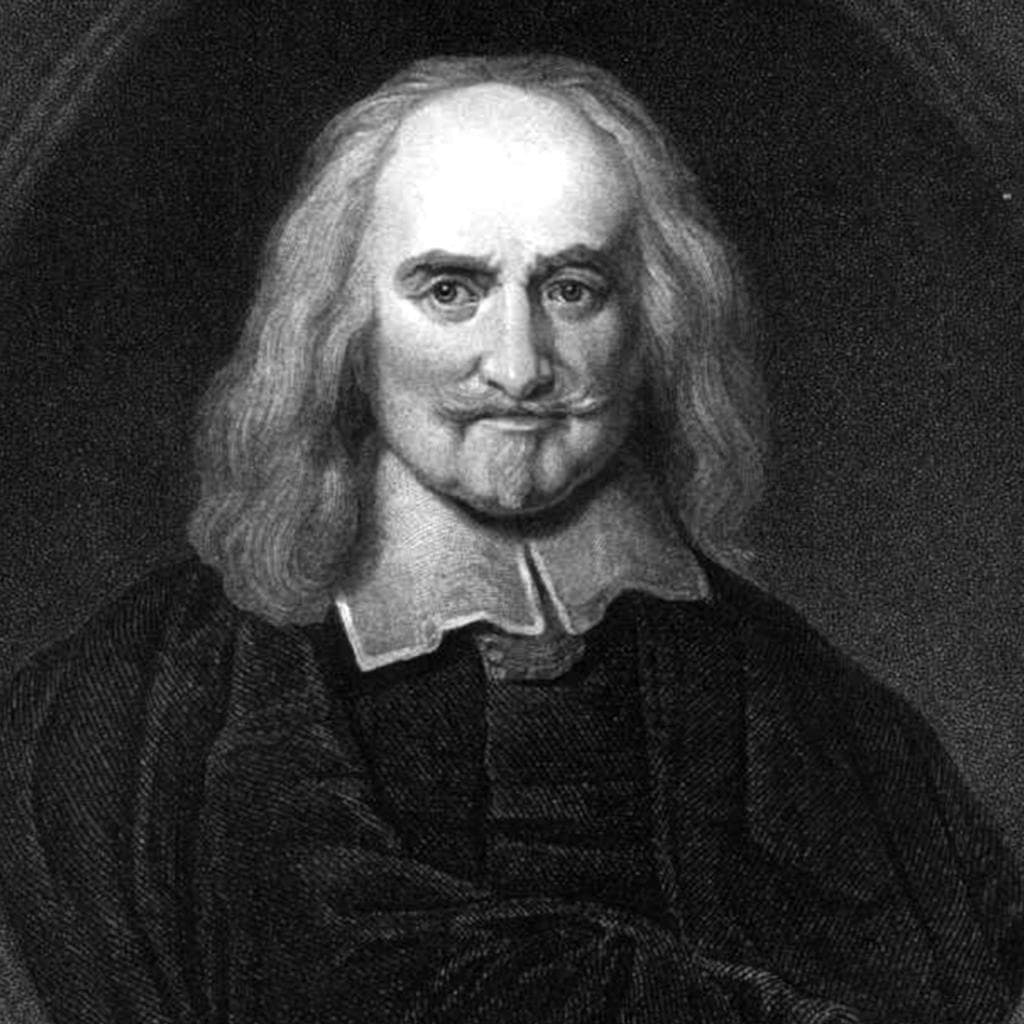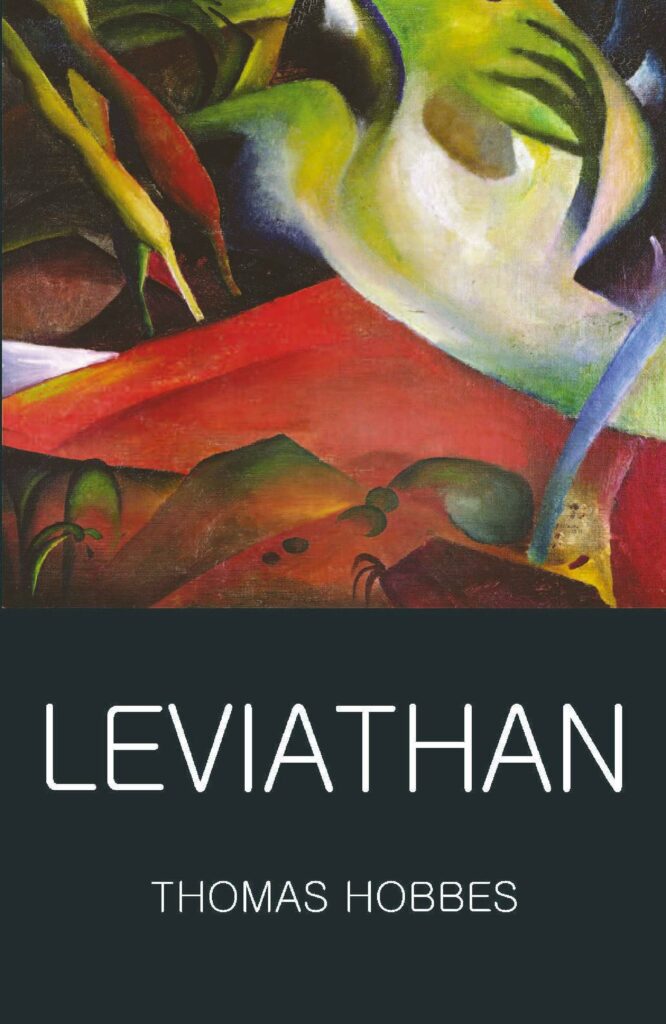
1588-1679
English
Words are the money of fools.
Thomas Hobbes
Thomas Hobbes (1588-1679) was an English philosopher. He is best remembered for 'Leviathan', a hugely influential book that has caused him to be considered one of the founders of modern political philosophy.
Thomas Hobbes was born in Wiltshire on 5th April, 1588. His father, also named Thomas, was a minister. Hobbes was born prematurely due to his mother’s fright at reports of the approach of the Spanish Armada. Hobbes later reported that “my mother gave birth to twins: myself and fear.”
Hobbes learned to read and write English at the age of four, began learning Greek and Latin at six and translated Euripedes’ Medea into Latin when he was fourteen. Hobbes’ father abandoned his wife, Thomas and his two siblings when Hobbes was in his teens, having been forced to flee to London after being involved in a fight with a clergyman outside his church. The family were left in the care of Thomas Senior’s wealthy brother Francis, who funded Hobbes’ education at the University of Oxford. Hobbes graduated on 5th February 1608 with a B.A.
After university, Hobbes took a position with William Cavendish, Baron Hardwick, to tutor his son, also named William, who was just two years younger than Hobbes. Hobbes became a companion to the young William and in 1614 the two embarked on a Grand Tour of the continent. Hobbes’ role as tutor gave him opportunity to revive his study of Greek, Roman and English historians and Greek and Latin poets. Allowed as many books as he needed for his studies, Hobbes effectively became Cavendish’s librarian.
During the 1620s, Hobbes served occasionally as a secretary and spent some time in this capacity to Francis Bacon between 1623 and 1625. Hobbes took dictation from Bacon and translated some of his essays into Latin. After the elder Cavendish died of the plague in 1628, Hobbes was dismissed by his widow who believed that Hobbes was in part responsible for the poor state of her husband’s finances. Hobbes found work tutoring the son of a neighbour of the Cavendishes, Sir Gervase Clifton, and Hobbes soon embarked on another Grand Tour with his new pupil, spending a great deal of time in Paris. During this trip, Hobbes became acquainted with the French priest Marin Mersenne and his circle of philosophers, mathematicians and scientists. It is likely that it was during this trip that Hobbes discovered the power of geometry.
When Hobbes returned to England in 1630, he was rehired by Christian Cavendish to tutor the son of his previous pupil. During yet another Grand Tour between 1634 and 1636, Hobbes spent a lot of his time with Mersenne and was a regular debater in his philosophical groups. He also spent time studying mathematics and optics.
Hobbes returned to England in 1637 and remained there until the Long Parliament of 1640, when he feared that his treatise The Elements of Law, Natural and Politic would make him a marked man. Hobbes fled to France and did not return to England for eleven years. Back in Paris, Hobbes rejoined Mersenne’s circle and wrote another version of his political philosophy Elementorum philosophiae section tertia: De cive (Elements of Philosophy Third Section: Of The Citizen, 1642). The book was revised as Elementa philosophica de cive in 1647 and translated in 1651 as Philosophical Rudiments Concerning Government and Society: Or a Dissertation Concerning Man in His Several Habitudes and Respects, as the Member of a Society, First Secular, and The Sacred.
During 1646, Hobbes taught mathematics to the Prince of Wales, the future Charles II. He was also trying to finish the second part of Elementa philosophiae, De corpora (Of The Body), during this time but was unable to resolve some scientific problems and the book would not be published until 1655. An illness in autumn 1647, which kept Hobbes in bed for two months, also contributed to the delay. Hobbes may have written some of the material that was later used in Leviathan in mid 1646 but it is believed that he did not decide the write the book until after the beheading of the King and dissolution of the monarchy in 1649.
Hobbes returned to England in early 1652, around six months after Leviathan was published. Hobbes turned his attentions back to Elementa philosophiae and published De corpora in 1655 and De homine in 1658.
Hobbes spent a large part of the 1650s and 1660s embroiled in acrimonious disputes with Robert Boyle, John Wallis and the Royal Society for the Promotion of Natural Knowledge. Hobbes had developed a bad reputation and would not entertain challenges on his opinions, walking out of informal gatherings with other intellectuals. The views that Hobbes expressed in Leviathan, which undermined belief in revelation, prophets and miracles, did not help his cause. In 1666, a bill was introduced in Parliament to investigate Hobbes for “atheism and profanity” but no more came of it after it was referred to committee.
After fighting various intellectual battles for a quarter of a century, by the mid 1670s Hobbes was weary. He spent the final years of his life with the Cavendishes of Chatsworth and Hardwick Hall, with whom he had begun his career many years previously. During this time he indulged one of his earliest pleasures, translation. Hobbes translated Homer’s Odyssey in 1675 and Iliad the following year.
Hobbes fell ill in October 1679 and died on 4th December 1679. He is buried in the parish church near Hardwick Hall.
Additional Resources about Thomas Hobbes:
- Thomas Hobbes – Wikipedia
- Thomas Hobbes – BBC History
Books by Thomas Hobbes
